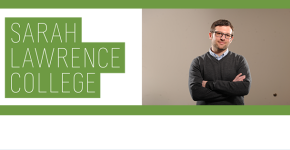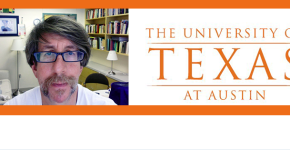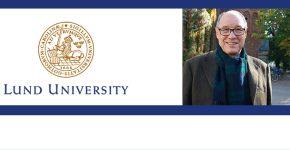Category: Psychology
-

Chris Hopwood, Michigan State University – Women More Sensitive to Annoying Behavior
Does your sex help determine how annoying you find your co-workers? Chris Hopwood, associate professor of psychology at Michigan State University, delves into the psychology behind how both sexes perceive the actions of others. Christopher J. Hopwood, PhD, is an Associate Professor of Psychology at Michigan State University where he is Principal Investigator of the…
-

Adam Brown, Sarah Lawrence College – PTSD Treatments
Having PTSD may hinder your ability to imagine a positive future for yourself. Adam Brown, clinical psychologist and member of the psychology faculty at Sarah Lawrence College, delves into treatment options to help reverse this cognitive disorder. Adam Brown is a clinical psychologist and member of the psychology faculty at Sarah Lawrence College where he…
-

June Pilcher, Clemson University – Lack of Sleep and Decision Making
Your level of self-control could be tied to the amount of sleep you had last night. June Pilcher, professor in the department of psychology at Clemson University, explores how getting an appropriate amount of shut eye could lead to better choices during the daytime. Dr. Pilcher came to Clemson in 2001 and was awarded Alumni…
-

Anna Sosa, Northern Arizona University – Traditional vs Electronic Toys
Should infants be learning language from electronic toys? Anna Sosa, professor of communication sciences and disorders at Northern Arizona University, examines how the quality of interaction between children and electronic toys compares with the quality of their interactions with books and more traditional toys. Anna Sosa completed her PhD in Speech and Hearing Sciences at…
-

David Hugh-Jones, University of East Anglia – Honesty Across Cultures
If you’re looking for honesty, not all countries are alike. David Hugh-Jones, senior lecturer in economics at University of East Anglia, explains his research into honesty across cultures. David Hugh-Jones is a Senior Lecturer at the School of Economics. He holds a PhD in Government from the University of Essex where he was based as…
-

Dylan Minor, Harvard Business School – Toxic Workers
Having a toxic worker on your staff can cause big problems. Dylan Minor, Visiting Assistant Professor of Business Administration at the Harvard Business School, explores the cost of having even one person bringing down the office. Dylan Minor is a visiting Assistant Professor of Business Administration at Harvard Business School, where he teaches a first…
-

Joseph Chandler, Birmingham-Southern College – Music and Sleep
Can soothing music help you fall and stay asleep? Joseph Chandler, Assistant Professor of Psychology at Birmingham-Southern College, explains how even music written to make you snooze may only play a small part in the actual process of dozing off. I specialize in the behavioral neuroscience of consciousness, including individual differences in sleep and sleep…
-

Robert Josephs, University of Texas at Austin – Hormones and Unethical Behavior
Can you blame your hormones for the last untruth you told? Robert Josephs, professor of psychology at the University of Texas at Austin, explains that may be the case. Robert Josephs is a professor of psychology and the principal investigator in the Clinical Neuroendocrinology Laboratory at The University of Texas at Austin. He has a…
-

Kathrin Rothermich, McGill University – Social Communication
There are two levels to any conversation, what is said aloud – and what is not. Kathrin Rothermich, PhD in Cognitive Science; Postdoctoral Fellow at McGill University, examines her research into whether or not you’re hearing the whole story. I studied Linguistics and Educational Science at the University of Leipzig (Germany) and obtained my PhD in…
-

Germund Hesslow, Lund University – Classical Conditioning and the Cerebellum
Classical conditioning may not have worked on Pavlov’s dog if there had been more than one stimulus. Germund Hesslow, professor of neuroscience at Lund University, discusses how multiple stimuli can make each association weaker. Germund Hesslow studied philosophy, psychology and medicine at Lund University in the seventies and eighties and received PhDs in philosophy and…
